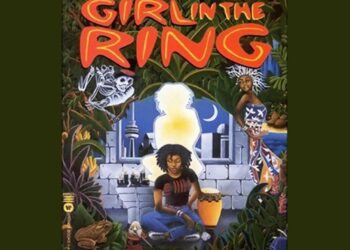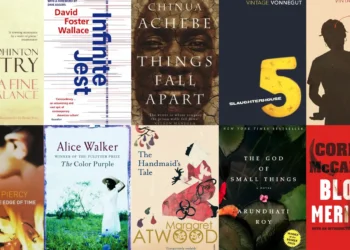Table of Contents
ToggleWhat is the idea of comparative literature in India
What is comparative Indian literature?,What are the types of comparative literature?,Who is the father of comparative literature?,What is the aim of comparative study?,Comparative literature in India is an academic discipline that delves into literary works across diverse languages, cultures, and traditions. This field seeks to analyze the commonalities, distinctions, and interconnections present in literature from various linguistic and cultural contexts. With a foundation in interdisciplinary exploration, comparative literature enables scholars to navigate the intricacies of global literary traditions while also investigating the unique aspects of individual literary heritages. The evolution of this discipline in India has been shaped by the country’s cultural diversity, linguistic richness, and profound literary legacy.What is the idea of comparative literature in India
Historical Evolution of Comparative Literature in India:
The inception of comparative literature in India can be traced back to ancient times when scholars engaged in the study of texts across multiple languages, particularly within the Sanskrit tradition. However, the formal establishment of comparative literature as an academic discipline gained prominence during the colonial and post-colonial eras.
The introduction of English education under British colonial rule and the subsequent translation of Indian texts into English spurred interest in comparative literary studies. Scholars began comparing Indian literature with Western literary traditions, leading to a systematic exploration of cross-cultural literary connections.
Post-independence, Indian universities began offering courses in comparative literature, reflecting a broader commitment to understanding and preserving the country’s linguistic and cultural diversity. The interdisciplinary nature of comparative literature proved invaluable for examining the intersections of literature with philosophy, history, sociology, and cultural studies.
Also Read-
- What is the origin of Indian folk theatre
- What is the folk culture of India
- What is the short summary of the play A Raisin in the Sun
Key Concepts in Comparative Literature:
1. Cross-Cultural Analysis:
- Comparative literature in India emphasizes the analysis of literary works from different cultural backgrounds. Scholars scrutinize how themes, motifs, and narrative structures transcend linguistic and geographical boundaries.
2. Translation Studies:
- Translation is integral to comparative literature. Scholars explore the challenges and nuances of translating literary works across languages, uncovering the impact of translation on the interpretation and reception of texts.
3. Interdisciplinary Approach:
- Comparative literature encourages an interdisciplinary approach by integrating insights from various fields such as history, philosophy, linguistics, and cultural studies. This broadens the scope of literary analysis beyond language-specific boundaries.What is the idea of comparative literature in India
4. Literary Theory and Criticism:
- Comparative literature in India engages with diverse literary theories and critical perspectives. Scholars explore how different theoretical frameworks contribute to the understanding of literary texts, fostering a rich and nuanced discourse.
5. Postcolonial Literature:
- The postcolonial lens is significant in Indian comparative literature. Scholars examine how postcolonial literature reflects the impact of colonial histories and power dynamics, shedding light on the complexities of cultural identity.
Challenges and Opportunities:
1. Linguistic Diversity:
- India’s linguistic diversity poses both a challenge and an opportunity for comparative literature. While it allows for a rich exploration of literary traditions, the multitude of languages and dialects requires a focused approach to specific linguistic pairings.
2. Colonial Legacy:
- The colonial legacy has influenced the study of comparative literature in India. Scholars critically examine how colonial perspectives shaped early comparative studies and seek to decolonize the discipline by incorporating indigenous narratives and voices.
3. Globalization and Contemporary Literature:
- Globalization has brought contemporary Indian literature to the forefront of comparative studies. Scholars explore how Indian writers engage with global themes, contributing to the evolving landscape of world literature.
4. Digital Age and Literary Interaction:
- The digital age has transformed the way literature is produced, disseminated, and consumed. Comparative literature in India responds to this shift by considering the impact of digital platforms, social media, and online literary communities on literary interactions.
5. Intersectionality and Identity:
- Comparative literature in India engages with questions of identity, particularly in the context of marginalized voices. Scholars examine how literature reflects and shapes notions of caste, gender, and other forms of social identity.
Notable Contributions and Scholarly Work:
1. A. K. Ramanujan:
- A. K. Ramanujan, a renowned Indian scholar, made significant contributions to comparative literature, especially in the realm of folklore studies. His work delved into the oral traditions of Indian communities, highlighting the rich tapestry of folk narratives.
2. Gayatri Chakravorty Spivak:
- Gayatri Chakravorty Spivak, an influential postcolonial theorist, has contributed to the field of comparative literature by examining issues of language, power, and representation. Her work addresses the challenges of translating texts from colonized regions and foregrounds the voices of the marginalized.
3. Indian Comparative Literature Journals:
- Journals such as “Indian Journal of Comparative Literature and Translation Studies” provide a platform for scholars to publish research, fostering a dynamic discourse within the field. These publications contribute to the academic dialogue on comparative literature in the Indian context.
Future Directions:
1. Global Collaborations:
- Comparative literature in India is poised for global collaborations. Increasing interactions between Indian scholars and their counterparts in other countries can enrich the field by fostering a cross-cultural exchange of ideas and methodologies.
2. Digital Humanities:
- The integration of digital humanities tools and methodologies offers new avenues for research in comparative literature. The use of digital platforms, archives, and computational analysis can enhance the study of literary texts across languages and cultures.
3. Focus on Marginalized Voices:
- Future research in comparative literature should continue to amplify marginalized voices. Exploring the works of writers from indigenous communities, Dalit literature, and other marginalized groups contributes to a more inclusive understanding of Indian literature.
4. Interdisciplinary Dialogues:
- Encouraging interdisciplinary dialogues within comparative literature can foster a more holistic approach. Collaboration with scholars from fields such as sociology, anthropology, and philosophy can provide fresh insights into the intersectionality of literature with broader cultural phenomena.
5. Literary Activism:
- Comparative literature scholars can engage in literary activism by promoting translations of lesser-known works, supporting regional languages, and advocating for the recognition of diverse voices. This proactive stance can contribute to a more equitable representation within the discipline.
Conclusion
The concept of comparative literature in India reflects the dynamic interplay between cultural diversity, linguistic plurality, and a rich literary heritage. From its historical evolution to contemporary challenges and opportunities, comparative literature in India has traversed a fascinating journey. Scholars in this field engage with a diverse array of literary traditions, employing an interdisciplinary lens to unravel the complexities of global literature.
As India continues to evolve, so does the landscape of comparative literature. The discipline remains a vital space for exploring connections between cultures, fostering cross-cultural understanding, and addressing issues of representation and identity. By embracing the challenges posed by linguistic diversity, historical legacies, and contemporary dynamics, comparative literature in India is poised to contribute significantly to the global discourse on literature and culture. Through continued research, global collaborations, and a commitment to amplifying diverse voices, the concept of comparative literature in India will undoubtedly flourish, reflecting the ever-evolving tapestry of Indian literary traditions.What is comparative Indian literature?,What are the types of comparative literature?,Who is the father of comparative literature?,What is the aim of comparative study?,
FAQs:
1. How does comparative literature address issues of identity and representation?
Comparative literature in India engages with questions of identity, particularly in the context of marginalized voices. Scholars explore how literature reflects and shapes notions of caste, gender, and other forms of social identity, contributing to a more inclusive understanding.
2. What are the challenges posed by linguistic diversity in India’s comparative literature?
India’s linguistic diversity presents both challenges and opportunities. While it allows for a rich exploration of literary traditions, the multitude of languages requires a focused approach to specific linguistic pairings for meaningful comparative analysis.
3. How has the digital age impacted comparative literature in India?
The digital age has transformed the production, dissemination, and consumption of literature. Comparative literature in India responds to this shift by considering the impact of digital platforms, social media, and online communities on literary interactions.
4. Who are some notable scholars in Indian comparative literature?
A. K. Ramanujan, renowned for his contributions to folklore studies, and Gayatri Chakravorty Spivak, an influential postcolonial theorist, are notable scholars in Indian comparative literature. Their work has significantly shaped the field.
















